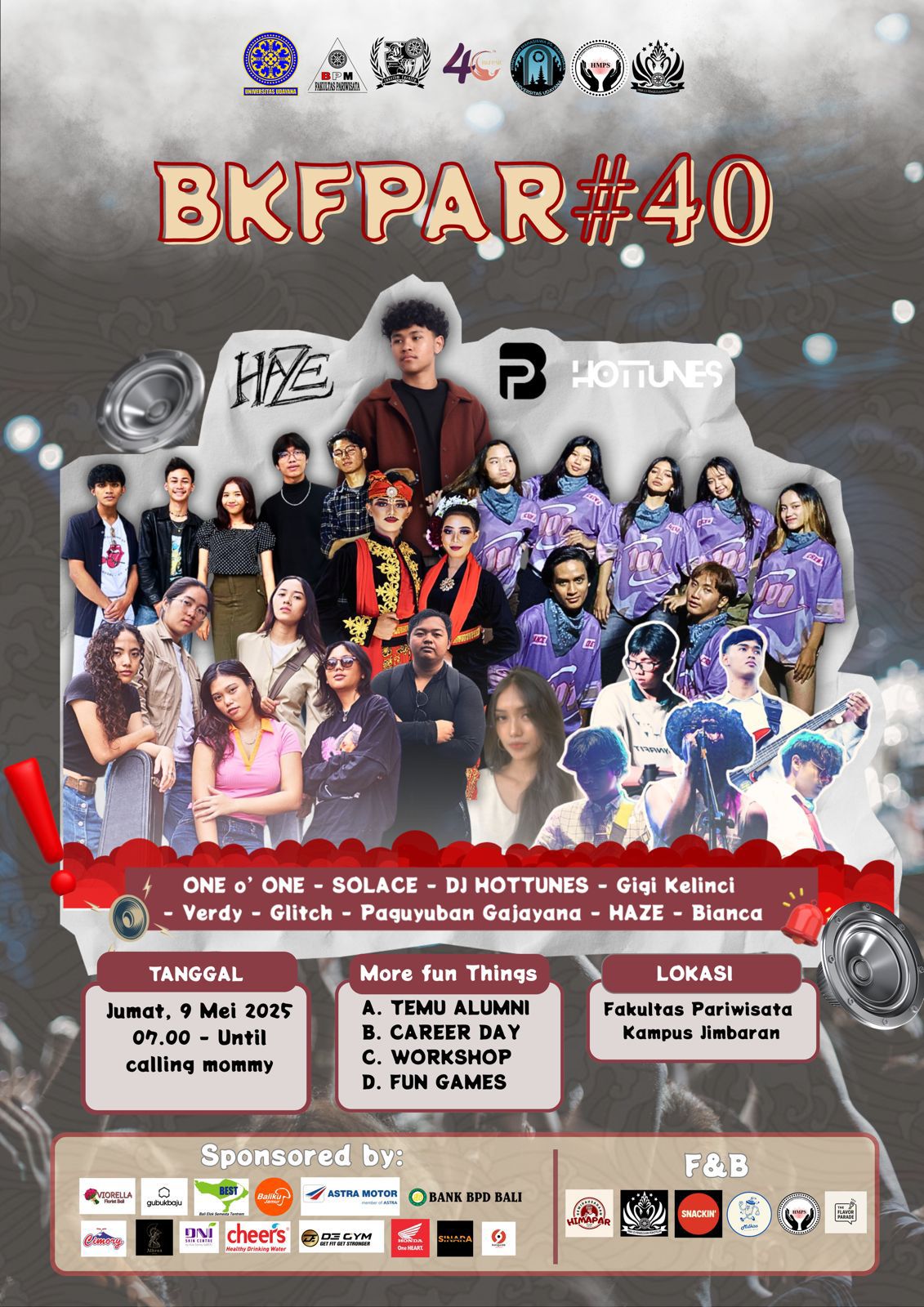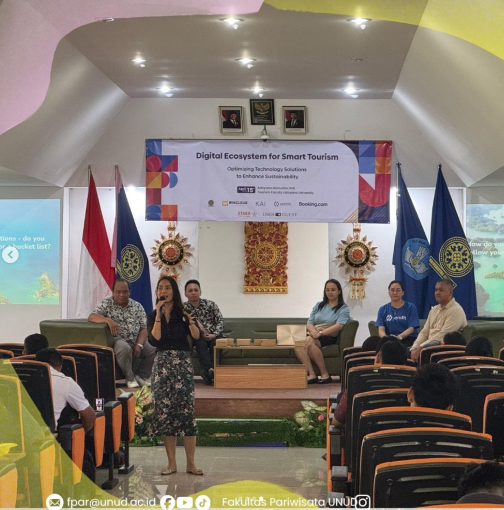Vision and Mission
Vision of the Bachelor of Tourism Program
"To become a study program that produces excellent, independent, and cultured human resources in the planning, management, and development of tourism destinations."
Superior
Refers to possessing advantages in specific areas that are comparative, competitive, and innovative at local, national, and international levels. These advantages should significantly contribute to the advancement of science, technology, and the arts, as well as to community development.
Independent
Refers to having leadership and entrepreneurial capabilities in managing resources optimally to generate innovations that benefit scientific development and human well-being.
Cultured
Refers to upholding an academic culture grounded in the noble values of Pancasila and universal local wisdom, enabling individuals to interact within society by prioritizing honesty and aligning thoughts, words, and actions (Tri Kaya Parisudha).
Mission of the Undergraduate Tourism Study Program
-
To provide high-quality education, research, and community service in the field of planning, management, and development of tourism destinations.
-
To produce competent graduates who are capable of competing at both national and international levels.
-
To actively contribute to the advancement of science and technology, particularly in the planning, management, and development of tourism destinations.
Objectives
-
To apply and further develop knowledge for the planning, management, and development of tourism destinations.
-
To understand, adapt to, and contribute to technological advancements related to the planning, management, and development of tourism destinations at both national and international levels.
-
To analyze and provide solutions to tourism-related issues, especially those concerning the planning, management, and development of tourism destinations, in order to foster professional growth as tourism graduates.
-
To build a professional work culture, both independently and collaboratively within teams, by integrating various interdisciplinary perspectives.
Expected Learning Outcomes (ELO)
The formulation of graduate profiles in the Tourism Undergraduate Study Program aligns with the established Expected Learning Outcomes (ELOs). The ELOs for the Tourism Undergraduate Study Program are as follows:
-
Able to contribute to the improvement of quality of life based on the principles of Pancasila (the foundational ideology of the Republic of Indonesia). (ELO 1)
-
Able to demonstrate an entrepreneurial spirit. (ELO 2)
-
Able to communicate effectively and exhibit social awareness as well as concern for society and the environment. (ELO 3)
-
Able to respect and appreciate cultural diversity, individual beliefs, and intellectual property rights. (ELO 4)
-
Able to integrate the UNWTO Global Code of Ethics for Tourism and the United Nations Sustainable Development Goals (SDGs) into tourism destination management. (ELO 5)
-
Able to apply tourism science and technology in accordance with scientific procedures. (ELO 6)
-
Able to supervise and evaluate the development and management of tourism destinations. (ELO 7)
-
Able to manage tourism-related issues for the planning and development of tourism destinations. (ELO 8)
-
Able to design and develop Internet of Things (IoT) solutions for tourism destination development. (ELO 9)
-
Qualified to assess the feasibility of tourism destination studies. (ELO 10)
-
Able to explain concepts and theories related to tourism destination development. (ELO 11)
-
Proficient in concepts and theories of tourism destination management. (ELO 12)
-
Proficient in concepts and theories of tourism planning and policy. (ELO 13)
-
Proficient in concepts and theories of tourism destination marketing. (ELO 14)
-
Able to analyze and develop tourism destinations based on local wisdom and cultural heritage. (ELO 15)
-



FACULTY OF TOURISM